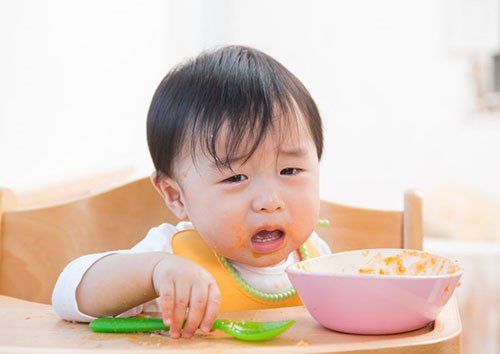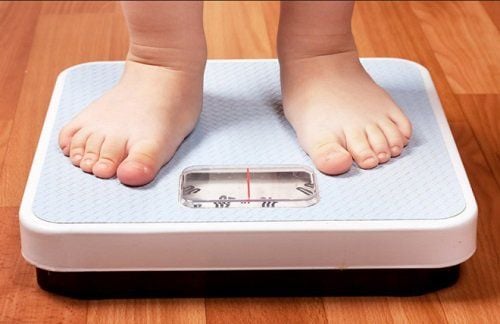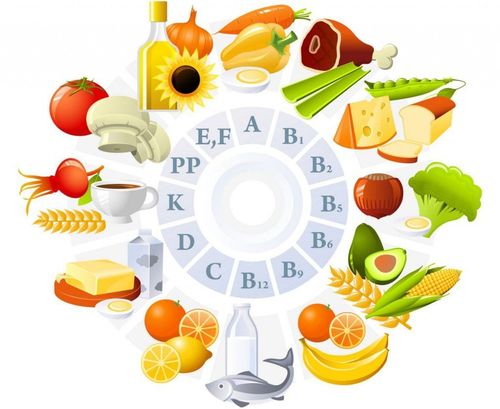This is an automatically translated article.
Malnourished children who do not gain weight will harm both their physical and mental health during the first years of life as well as future development. The more malnourished children are, the more likely they are to have problems with physical and intellectual development as well as related diseases.1. Types of malnutrition in young children
There are four classifications of malnutrition, including emaciation, stunting, low birth weight, and vitamin and mineral deficiencies. Malnutrition makes children much more susceptible to illness and death.Weight versus height that is disproportionate is called emaciation. This usually indicates recent severe weight loss or acute malnutrition, where there is not enough food to eat and/or there are infectious diseases, such as diarrhea, that cause the body to lose weight. may lose weight. Children who are moderately or severely emaciated have a higher risk of death, but fortunately, they can still be treated with timely intervention.
Low height for age is called stunting. This is the result of chronic or recurrent malnutrition, often associated with poor socioeconomic status, poor maternal health and nutrition, frequent illness or infant feeding and care. and young children are not suitable in the early stages of life. Stunting prevents children from reaching their physical and cognitive potential as they grow up.
Children who are underweight for their average age are called underweight. In particular, a child whose weight is lighter than other children of the same age may be suffering from malnutrition, stunting, emaciation or both.
Micronutrient-related malnutrition is a deficiency of vitamins and minerals. Among them, iodine, vitamin A and iron are the most important of the micronutrients necessary for global public health. Deficiencies of these substances are a major threat to the health and development of people worldwide, especially children and and in low-income countries.
2. Why does the child not gain weight?
Children who don't get enough food often go hungry and in the long run this can lead to malnutrition. However, children can still be at risk of malnutrition for reasons that have nothing to do with hunger. Even well-fed babies can become malnourished if they don't eat foods that provide the right nutrients, vitamins and minerals.In addition, children can become malnourished if they have certain diseases and conditions that prevent the body from properly digesting or absorbing food, such as:
Children with celiac disease have intestinal problems caused by a protein called gluten, which is found in activated wheat, rye, and barley. Children with cystic fibrosis have difficulty absorbing nutrients because the disease affects the pancreas, an organ that normally produces enzymes needed for digestion. In addition, in the category of micronutrient-associated malnutrition, the world's most common nutritional deficiency in young children is iron deficiency leading to anemia. On the other hand, children and adolescents following special diets, such as vegans, still need to eat well-balanced meals and a variety of foods to get enough nutrients to ensure adequate protein intake. and vitamins like B12.

Trẻ suy dinh dưỡng không tăng cân có thể do thiếu hụt các chất dinh dưỡng thiết yếu
3. What are the consequences for malnourished children who do not gain weight?
Malnourished children who do not gain weight will harm both their physical and mental health during the first years of life as well as future development. The more malnourished a child, or in other words, the more nutrients a child lacks, the more likely they are to have problems, developmental delays, and related diseases.Accordingly, malnourished children who do not gain weight may experience the following consequences:
Frequent fatigue, weakness and low energy reserves Decreased muscle function in the malnourished body, resulting in wasting short-term depletion of fat and muscle mass , heart failure or reduced cardiac and respiratory function due to reduced myocardial mass Dry, scaly skin Swelling and bleeding gums Teeth decay Enlarged abdomen, gastrointestinal disorders caused by chronic malnutrition in children to changes in pancreatic exocrine function, intestinal blood flow, villi structure, and intestinal permeability. Persistent diarrhea increases mortality in severely malnourished children. Osteoporosis or fragile bones Slow wound healing in children with trauma or surgery Learning problems Psychosocial consequences such as apathy, depression, anxiety and self neglect . If a pregnant woman is malnourished, the baby may be born with a lower birth weight and a lower chance of survival.
Vitamin A deficiency due to malnutrition in children is a major cause of preventable blindness in developing countries. On the other hand, children with severe vitamin A deficiency are more at risk of getting sick or dying from infections like diarrhea or measles.
Iodine deficiency can result in mental retardation and general physical retardation.
Iron deficiency in infants can slow growth and make older children less active, less attentive. Adolescents who are malnourished often have difficulty going to school.

Trẻ suy dinh dưỡng không tăng cân lâu ngày sẽ gây ảnh hưởng đến sự phát triển của trẻ
4. How to treat malnourished children?
Fortunately, many of the consequences of childhood malnutrition can be corrected, especially if the child is only mildly malnourished or has been emaciated for a short time.However, anytime you think your child isn't getting the proper nutrients, talk to your pediatrician to perform a physical exam and consultation about the type and amount of food your child needs to eat. consumed every day. In addition, the doctor may also:
Measure the child's height, weight, and body mass index (BMI) to see if the child is within healthy limits for the child's age Check for underlying conditions may cause malnutrition Order blood tests to check for nutritional deficiencies Perform additional tests based on the child's medical history and physical examination Accordingly, treatment of malnutrition depends on the underlying cause. acquired in each child's case. A doctor or dietitian can recommend specific changes in the types and amounts of foods that children need to eat, and can prescribe supplements, such as vitamins and minerals, for parents. can be supplemented at home for children.
Furthermore, if underlying problems or physical illnesses causing malnutrition are found, the pediatrician will direct treatment or support nutritional support to ensure that the child receives adequate nutrition. essential nutrients.
In summary, with the above reasons explaining why children do not gain weight or the consequences of malnourished children do not gain weight above, parents have more foundation to focus on their children's daily meals. Sometimes children have acute diseases that reduce their ability to eat or they do not gain weight but increase in height is acceptable in a short time. On the contrary, if this is a problem for a long time, parents need to take the child to the doctor for timely correction, to avoid leaving a heavy impact on the child's stature when he is an adult.
For more nutritional knowledge and child care for each age, parents should regularly visit the website vimec.com and make an appointment with the leading doctors, pediatric and nutrition experts of the National General Hospital. Vinmec when needing advice on children's health.













